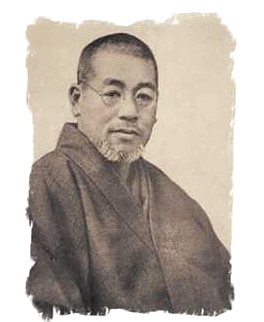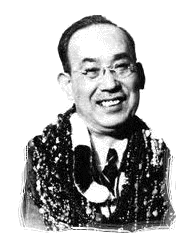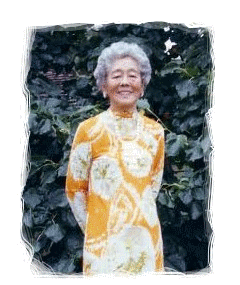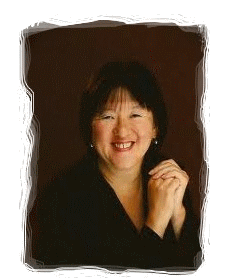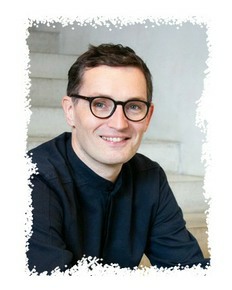|
Taken from an interview with Kristin Bonney
 Can you tell us about the history of Reiki - where and when does it originate? Can you tell us about the history of Reiki - where and when does it originate?
Although the origins of what we now call Reiki are probably very old, it re-emerged in the early 20th century with a Dr. Mikao Usui in Japan. The story goes that, stimulated by some students’ questions, he embarked on a long search for the origins of healing. Can anyone do it? Can it be taught? How does it work? After studying both Western and Eastern traditions, Dr. Usui went on a 21-day fast on a sacred mountain. When in deep meditation, he was given the symbolic tools and information that form the basis of Reiki practice. Reiki was originally brought to the West by Hawayo Takata, a Hawaiian Japanese woman who practiced and taught intensively in America until her death in 1980. Since then, Westerners have returned to Japan to find out more about the history, and there are now many and varied schools and styles of Reiki in the world. Phyllis Lei Furumoto continued to carry her grandmother Takata’s tradition of Usui Shiki Ryoho, and now her successor, Johannes Reindl, carries on.
What does the word ‘Reiki’ mean?
Rei-ki is often translated as ‘Universal Life-energy’. Mrs Takata described it as ‘God-Power’. However, it is not attached to any religious or philosophical belief-system.
Tell us about the different forms of Reiki and what they can be used for?
Most people come to Reiki as a healing technique, and many, as they work with it, gradually discover that it is much more. It can affect both the giver and receiver on every level, physical, mental, emotional and spiritual. So whilst for some it is another string to the bow of their list of therapies, for others it becomes a way of life. This depends both on how they were taught and what they are looking for in their lives. There are many different styles of reiki – hands on or hands slightly above the body, client lying or sitting and so on. But basically the practitioner is simply allowing the Reiki energy to flow through her into the recipient, bringing the balance and relaxation that produces beneficial changes.
What are the five principles of Reiki?
These were given by Dr. Usui to his students, perhaps to teach them that physical healing is not complete without the healing of a person’s whole life. In their most usual version in English, they are:
Just for today, do not worry,
Just for today, do not anger,
Honour your parents, teachers and elders,
Earn your living honestly,
Show gratitude for every living thing.
- Seemingly simple, but not so easy to live by!
How do Traditional Japanese Reiki and Western Reiki vary?
Having been taught in the so-called Western style, I am not qualified to speak about systems that have more recently been connected with in Japan. I understand some include a meditation practice. I would refer those interested in the various styles to Oliver Klatt’s book, ‘Reiki Systems of the World’, which is very comprehensive.
In your experience, what complaints does Reiki work best for?
As I have said, Reiki affects the whole person. So that although someone might come along with a particular symptom, one never quite knows on what level they will be affected. Hawayo Takata said that ‘Reiki goes to the cause’. Generally, however, people find a general sense of strengthening and a deep sense of relaxation which can lay down the conditions for the healing of all kinds of conditions.
Does your mind have to be open to it in order for it to work?
No. But probably someone with a completely closed mind wouldn’t ask for treatments!
Probably those drawn to explore Reiki would have general sense of there being ‘something more’ than physical matter.
Can anyone learn how to practice Reiki - what specific skills are needed?
Anyone can learn, and no particular skills are necessary. I have taught students from aged four to late eighties, and they all ‘get it’. Possibly those with some experience of body-work, yoga or the martial arts ‘turn on’ more quickly. What is needed after the initial training is a commitment to practice.
Does Reiki drain the practitioner?
No. In fact giving a treatment can be as energizing as receiving. We are not using our own energy, neither are we diagnosing or directing it. We are simply allowing this Universal Life Energy to flow through us into the recipient, going to wherever it is most needed. However, it is important for the person giving to make sure they are physically comfortable, as they need to remain still in each position for some time.
As a practitioner, do you ‘pick up’ negativity from someone you are treating?
No. Since we are neither directing nor controlling the energy, there is no personal involvement. In fact the less investment we have in the outcome, the more effective the session seems to be.
Occasionally we feel a passing twinge in our own body, indicating where we need to place our hands. A very sensitive person might feel the emotions of the person they are treating, but this does not last.
What does a typical Reiki session involve - what can I expect to happen at a first session and how long will it last?
In a full session of about an hour to an hour and a half, you would lie fully clothed on a massage table. You would feel hands laid gently on (in some styles slightly above) your body in a series of positions on the head, abdomen and back. Legs and arms might also be treated. You might notice that the hands were hotter in certain positions. You might go to sleep, and would almost certainly feel a sense of calm and relaxation. Maybe you would notice a reduction of pain in certain places, or a clearing of some mental or emotional confusion. Occasionally people notice old symptoms surfacing in what is known as a ‘healing reaction’. This passes quite quickly, and is seen as a good sign, indicating something is moving.
How often would I have to have the treatment to feel a benefit?
Mrs. Takata often recommended a series of four consecutive sessions as a start to tackling any chronic condition. Otherwise, or after this, one a week would be a good program. Some benefit is usually felt right away, but of course long-term conditions are likely to need longer.
Next page >>
|
